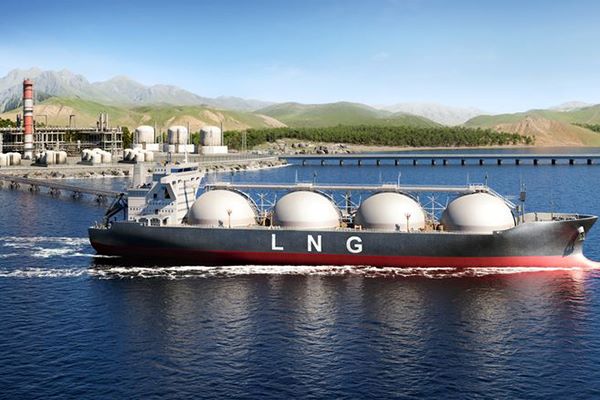ii view: cost cuts help Shell beat profit forecasts
A diversity of operations and an ongoing push by management to increase efficiency. Buy, sell, or hold?
31st July 2025 11:00
by Keith Bowman from interactive investor

Second-quarter results to 30 June
- Adjusted profit of $4.26 billion, down from $5.58 billion in Q1
- Quarterly share buyback of $3.5 billion, unchanged from Q1
- Quarterly dividend of $0.358 per share, unchanged from Q1
- Group net debt of $43.2 billion, up from $41.5 billion in Q1
Chief executive Wael Sawan said:
"Shell generated robust cash flows reflecting strong operational performance in a less favourable macro environment. We continued to deliver on our strategy by enhancing our deep-water portfolio in Nigeria and Brazil, and achieved a key milestone by shipping the first cargo from LNG Canada.
“Our continued focus on performance, discipline and simplification helped deliver $3.9 billion of structural cost reductions since 2022, with the majority delivered through non-portfolio actions. This focus enables us to commence another $3.5 billion of buybacks for the next three months, the 15th consecutive quarter of at least $3 billion in buybacks."
- Our Services: SIPP Account | Stocks & Shares ISA | See all Investment Accounts
ii round-up:
Oil and gas major Shell (LSE:SHEL) today revealed quarterly profit that beat City forecasts, despite lower oil prices, a weaker contribution from trading activities and with ongoing cost savings of $0.8 billion in the first half of 2025 playing a part.
Second-quarter profit of $4.26 billion is ahead of a consensus forecast at $3.74 billion, although down from the previous quarter’s $5.58 billion profit, impacted by a weaker economic backdrop.
The share buyback programme has been maintained at $3.5 billion. A quarterly dividend of $ 0.358 per share is also unchanged from the prior quarter and payable to eligible shareholders on 22 September.
Shares in the FTSE 100 company rose 2% in UK trading having come into these latest results up by close to a tenth year-to-date. That’s similar to the FTSE 100 index so far in 2025. Rival BP (LSE:BP.), for which Shell recently denied any takeover intensions, are up 3% year-to-date.
Shell’s various divisions include integrated gas, upstream oil, downstream refining and marketing and including forecourt operations, as well chemicals and renewable energy.
Upstream and marketing operations helped drive the forecast beating profits, supported by ongoing management self-help initiatives including cost savings.
Under construction and committed for sale GigaWatt (GW) output for the group’s renewables business reduced to 3.8 GW from 4 GW in the first quarter.
Shell’s net debt rose for a third consecutive quarter, coming in at $43.2 billion and up from $35.2 billion in Q3 2024.
Broker Morgan Stanley reiterated its ‘overweight’ stance post the result, highlighting Shell as a ‘top pick’. Third-quarter results are scheduled for 30 October.
ii view:
The FTSE 100 index constituent changed its name from Royal Dutch Shell to just Shell in 2022, moving its headquarters to the UK. Shell serves approximately one million commercial and industrial customers as well as around 33 million people daily at over 47,000 retail stations and more than 54,000 electric charging points across more than 70 countries.
For investors, heightened geopolitical tensions and potential for operational disruption remain an investor concern. New supply coming predominately from Asia continues to pressure the Chemicals business. Raised trade tariffs reducing demand for products such as cars and therefore required production energy usage, warrants consideration, while bad weather can impact production.
- Where to invest in Q3 2025? Four experts have their say
- Should you invest when markets are at all-time highs?
- Listen to our podcast: how diversified is the global stock market?
On the upside, previous strategy changes including exploring only regions where hydrocarbons have already been found, is aiding more conservative capital expenditure and therefore helping underpin shareholders returns. Shell’s diversity of operations across oil, gas, chemicals, and retailing regularly allows one area of strength to counter another of weakness. Management’s previous estimate that the dividend could be sustained even with the oil price as low as $40 per barrel - currently $73 – is noteworthy, while a focus on reducing costs continues.
On balance, and despite ongoing risks, a consensus analyst fair value estimate above £30 per share and a forecast dividend yield of around 4% continue to offer grounds for optimism.
Positives:
- Diversity of operations
- Focus on shareholder returns
Negatives:
- Uncertain economic outlook
- Reduced focus on renewable energy assets
The average rating of stock market analysts:
Buy
These articles are provided for information purposes only. Occasionally, an opinion about whether to buy or sell a specific investment may be provided by third parties. The content is not intended to be a personal recommendation to buy or sell any financial instrument or product, or to adopt any investment strategy as it is not provided based on an assessment of your investing knowledge and experience, your financial situation or your investment objectives. The value of your investments, and the income derived from them, may go down as well as up. You may not get back all the money that you invest. The investments referred to in this article may not be suitable for all investors, and if in doubt, an investor should seek advice from a qualified investment adviser.
Full performance can be found on the company or index summary page on the interactive investor website. Simply click on the company's or index name highlighted in the article.